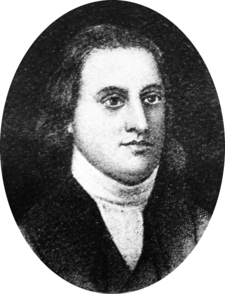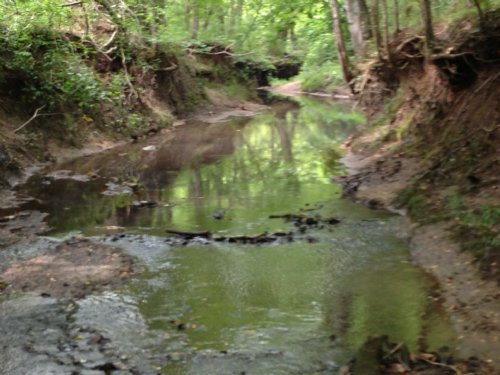Index to Georgia Wills and Estates

|

|

|
 One can just about read the history of any given community by reading gravestones. The proximity of the dates of death, particularly of children and mothers, help to define epidemics such as measles, cholera, smallpox, diphtheria and tyhpus, to name just a few. American has gone through many medical transitions, from cures and vaccines to the discovery of new strands of virus. The health of a community helps to tell the story of families and answer "why?" to certain situations. My grandmother was cautioned by her mother not to consider a certain beau for matrimony because he had health issues. In those days, women were considering marriage as a life-time-experience and one in which the husband supported her needs. Reading the old newspapers helps to determine more. When a wife left her husband, he posted a notice in the newspaper stating that he was not responsible for her debts. Too, she returned to the home of her parents. If she was abused, it was the duty of a brother to confront the husband. This sort of behavior spread like wildfire, and sorely affection reputations in all facets of business. Because a bad marriage could disrupt the good reputation of families, the parents assisted in locating a proper husband. My grandfather was a good person, never ill a day in his life. But one day, he climbed up on the roof to make some repairs, and fell off. The result was that he died. That left my grandmother, a young woman in her early forties, a widow for the rest of her life! Daniel Bonnell was Executed for Robbery "Light Horse" Harry Lee died at Dungeness The Case of Hog Smith The Romance of John Wesley Thomas Jones of Wales Capt. John Collins of Acworth William Few Peter Gruber and Neighs Forced out of Austria There were Two Margaret Hollands Dr. N. G. Long He Came Over in a BarrelThe Heartbreak of George A. Benson of Lawrenceville The Old Woman and Toccoa Falls They Traveled Far in Search of a Home The Enduring Escapades of Thomas Ramsey Major James HicksJeremiah Lamar The Flemings of Sunbury Lorenzo Dow Smith Wilson Conner The Sad Tale of Every Cemetery Swedish Soprano If Only I Could Tell My Grandmother the Rest of the Story Grannie Stories told over Chicken Every Sunday Anthony Bonnell Old Dan Tucker
One can just about read the history of any given community by reading gravestones. The proximity of the dates of death, particularly of children and mothers, help to define epidemics such as measles, cholera, smallpox, diphtheria and tyhpus, to name just a few. American has gone through many medical transitions, from cures and vaccines to the discovery of new strands of virus. The health of a community helps to tell the story of families and answer "why?" to certain situations. My grandmother was cautioned by her mother not to consider a certain beau for matrimony because he had health issues. In those days, women were considering marriage as a life-time-experience and one in which the husband supported her needs. Reading the old newspapers helps to determine more. When a wife left her husband, he posted a notice in the newspaper stating that he was not responsible for her debts. Too, she returned to the home of her parents. If she was abused, it was the duty of a brother to confront the husband. This sort of behavior spread like wildfire, and sorely affection reputations in all facets of business. Because a bad marriage could disrupt the good reputation of families, the parents assisted in locating a proper husband. My grandfather was a good person, never ill a day in his life. But one day, he climbed up on the roof to make some repairs, and fell off. The result was that he died. That left my grandmother, a young woman in her early forties, a widow for the rest of her life! Daniel Bonnell was Executed for Robbery "Light Horse" Harry Lee died at Dungeness The Case of Hog Smith The Romance of John Wesley Thomas Jones of Wales Capt. John Collins of Acworth William Few Peter Gruber and Neighs Forced out of Austria There were Two Margaret Hollands Dr. N. G. Long He Came Over in a BarrelThe Heartbreak of George A. Benson of Lawrenceville The Old Woman and Toccoa Falls They Traveled Far in Search of a Home The Enduring Escapades of Thomas Ramsey Major James HicksJeremiah Lamar The Flemings of Sunbury Lorenzo Dow Smith Wilson Conner The Sad Tale of Every Cemetery Swedish Soprano If Only I Could Tell My Grandmother the Rest of the Story Grannie Stories told over Chicken Every Sunday Anthony Bonnell Old Dan Tucker| SPECIAL GENEALOGY OPPORTUNITY NOW for yourself and friends!
$7 (auto expires after 1-month) Try it out now to see if you can find your ancestors |

|
 Sometimes the best information can be found in old cemeteries during winter. That is because the weeds are dried up thus making the stones more visible. This is a good time to search around for old sunken graves, and depressions in the soil. One February as the cold wind blew against my back, I examined the tombstones in the Davis Smith Cemetery at Brent, Georgia. I had visited there rather often, however, this time my eye caught sight of a sunken concrete slab. Turns out that the name and dates were quite visible, despite the fact that I had to scoop out some dirt. Turns out this was Jeremiah Smith, born 1795, brother of Davis Smith! This extra information helped me to locate the parents, and finally grandparents! . . . more . . .
Sometimes the best information can be found in old cemeteries during winter. That is because the weeds are dried up thus making the stones more visible. This is a good time to search around for old sunken graves, and depressions in the soil. One February as the cold wind blew against my back, I examined the tombstones in the Davis Smith Cemetery at Brent, Georgia. I had visited there rather often, however, this time my eye caught sight of a sunken concrete slab. Turns out that the name and dates were quite visible, despite the fact that I had to scoop out some dirt. Turns out this was Jeremiah Smith, born 1795, brother of Davis Smith! This extra information helped me to locate the parents, and finally grandparents! . . . more . . .| SPECIAL GENEALOGY OPPORTUNITY NOW for yourself and friends!
$7 (auto expires after 1-month) Try it out now to see if you can find your ancestors |

|
 Button Gwinnett was born in England in 1732 of respectable parents. Before embarking for America in 1770, his first career was in the mercantile business in Bristol. He landed at Charleston, S. C., where he commenced commercial business and remained for two years. He then disposed of his merchandise and purchased a plantation upon the island of St. Catharine in Georgia, to which he removed and became an enterprising agriculturalist. He was a man of an active and penetrating mind, and a close observer of passing events. Having been in England during the formation of the visionary and impolitic plan of taxing the colonies, he understood well the frame work of the British cabinet, and from his course in the struggle that ensued, it is reasonable to infer that he had imbibed strong whig principles before his removal to this country. He became a friend of Lyman Hall, a bold and fearless advocate of equal rights. On the 2nd of February, 1776, Mr. Gwinnett was appointed a member of the Continental Congress and took his seat in that venerable body on the 20th of the ensuing May. When the proposition of separating from England came before Congress, Mr. Gwinnett was a warm advocate of the measure, and when the trying hour arrived, he gave his approving vote and affixed his signature to the Declaration of Independence despite the consequences. In February, 1777, Mr. Gwinnett took his seat in the convention of his own state which convened for the purpose of forming a constitution and establishing a republican form of government. His activity in Congress, to which he stood re-elected, had already given him great weight, and he at once exercised a powerful influence in his new situation. He submitted the draft of a constitution which, with a few slight amendments, was immediately adopted by the convention. Shortly after this he was elevated to the presidency of the provincial council which was at that time the highest station in the State. Also expecting to be elected to this grand position was General Lachlan MacIntosh, against whom Mr. Gwinnett had pitted himself the preceding year as a candidate for brigadier-general, and was unsuccessful. The appointment went to MacIntosh and a power struggle ensued. The civil power claimed the right to try military officers for offences that General MacIntosh conceived were to be tried only by a court-martial. Another root of bitterness between these two gentlemen took its growth from the promotion of a senior lieutenant-colonel, then under General MacIntosh, to the command of his brigade, destined for the reduction of East Florida, agreeably to a plan formed by Mr. Gwinnett, which proved a disastrous failure. This was a source of mortification to the one, and the other publicly exulted in the misfortune. Under the new constitution a governor was to be elected on the first Monday of the ensuing May, and Mr. Gwinnett offered himself as a candidate. His competitor was a man whose talents and acquirements were far inferior to his, but succeeded in obtaining the gubernatorial chair. General MacIntosh again publicly exulted in the disappointments that were overwhelming his antagonist. The result was that Gwinnett challenged the General to a due on the streets of Savannah. They drew their guns at the distance of four paces. Both were but Mr. Gwinnett went home where he on the 27th of May, 1777, the very time he should have been in Congress. Thus, the Last Will and Testament of Button Gwinnett was the first document to be filed for probate in Savannah (Chatham County). A clear image is available to members of Georgia Pioneers
Button Gwinnett was born in England in 1732 of respectable parents. Before embarking for America in 1770, his first career was in the mercantile business in Bristol. He landed at Charleston, S. C., where he commenced commercial business and remained for two years. He then disposed of his merchandise and purchased a plantation upon the island of St. Catharine in Georgia, to which he removed and became an enterprising agriculturalist. He was a man of an active and penetrating mind, and a close observer of passing events. Having been in England during the formation of the visionary and impolitic plan of taxing the colonies, he understood well the frame work of the British cabinet, and from his course in the struggle that ensued, it is reasonable to infer that he had imbibed strong whig principles before his removal to this country. He became a friend of Lyman Hall, a bold and fearless advocate of equal rights. On the 2nd of February, 1776, Mr. Gwinnett was appointed a member of the Continental Congress and took his seat in that venerable body on the 20th of the ensuing May. When the proposition of separating from England came before Congress, Mr. Gwinnett was a warm advocate of the measure, and when the trying hour arrived, he gave his approving vote and affixed his signature to the Declaration of Independence despite the consequences. In February, 1777, Mr. Gwinnett took his seat in the convention of his own state which convened for the purpose of forming a constitution and establishing a republican form of government. His activity in Congress, to which he stood re-elected, had already given him great weight, and he at once exercised a powerful influence in his new situation. He submitted the draft of a constitution which, with a few slight amendments, was immediately adopted by the convention. Shortly after this he was elevated to the presidency of the provincial council which was at that time the highest station in the State. Also expecting to be elected to this grand position was General Lachlan MacIntosh, against whom Mr. Gwinnett had pitted himself the preceding year as a candidate for brigadier-general, and was unsuccessful. The appointment went to MacIntosh and a power struggle ensued. The civil power claimed the right to try military officers for offences that General MacIntosh conceived were to be tried only by a court-martial. Another root of bitterness between these two gentlemen took its growth from the promotion of a senior lieutenant-colonel, then under General MacIntosh, to the command of his brigade, destined for the reduction of East Florida, agreeably to a plan formed by Mr. Gwinnett, which proved a disastrous failure. This was a source of mortification to the one, and the other publicly exulted in the misfortune. Under the new constitution a governor was to be elected on the first Monday of the ensuing May, and Mr. Gwinnett offered himself as a candidate. His competitor was a man whose talents and acquirements were far inferior to his, but succeeded in obtaining the gubernatorial chair. General MacIntosh again publicly exulted in the disappointments that were overwhelming his antagonist. The result was that Gwinnett challenged the General to a due on the streets of Savannah. They drew their guns at the distance of four paces. Both were but Mr. Gwinnett went home where he on the 27th of May, 1777, the very time he should have been in Congress. Thus, the Last Will and Testament of Button Gwinnett was the first document to be filed for probate in Savannah (Chatham County). A clear image is available to members of Georgia Pioneers| SPECIAL GENEALOGY OPPORTUNITY NOW for yourself and friends!
$7 (auto expires after 1-month) Try it out now to see if you can find your ancestors |

|
 |
| Working to Preserve History |





